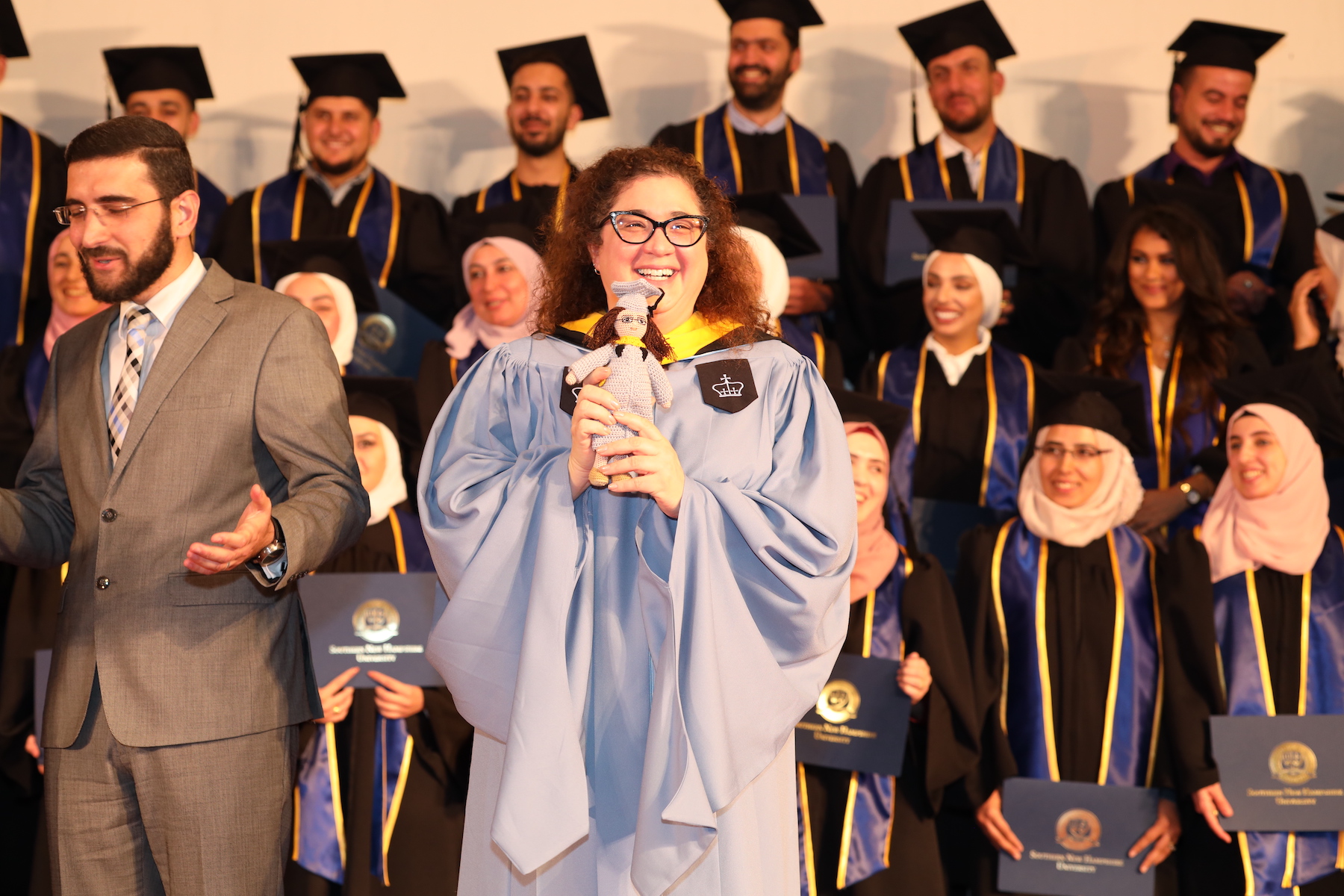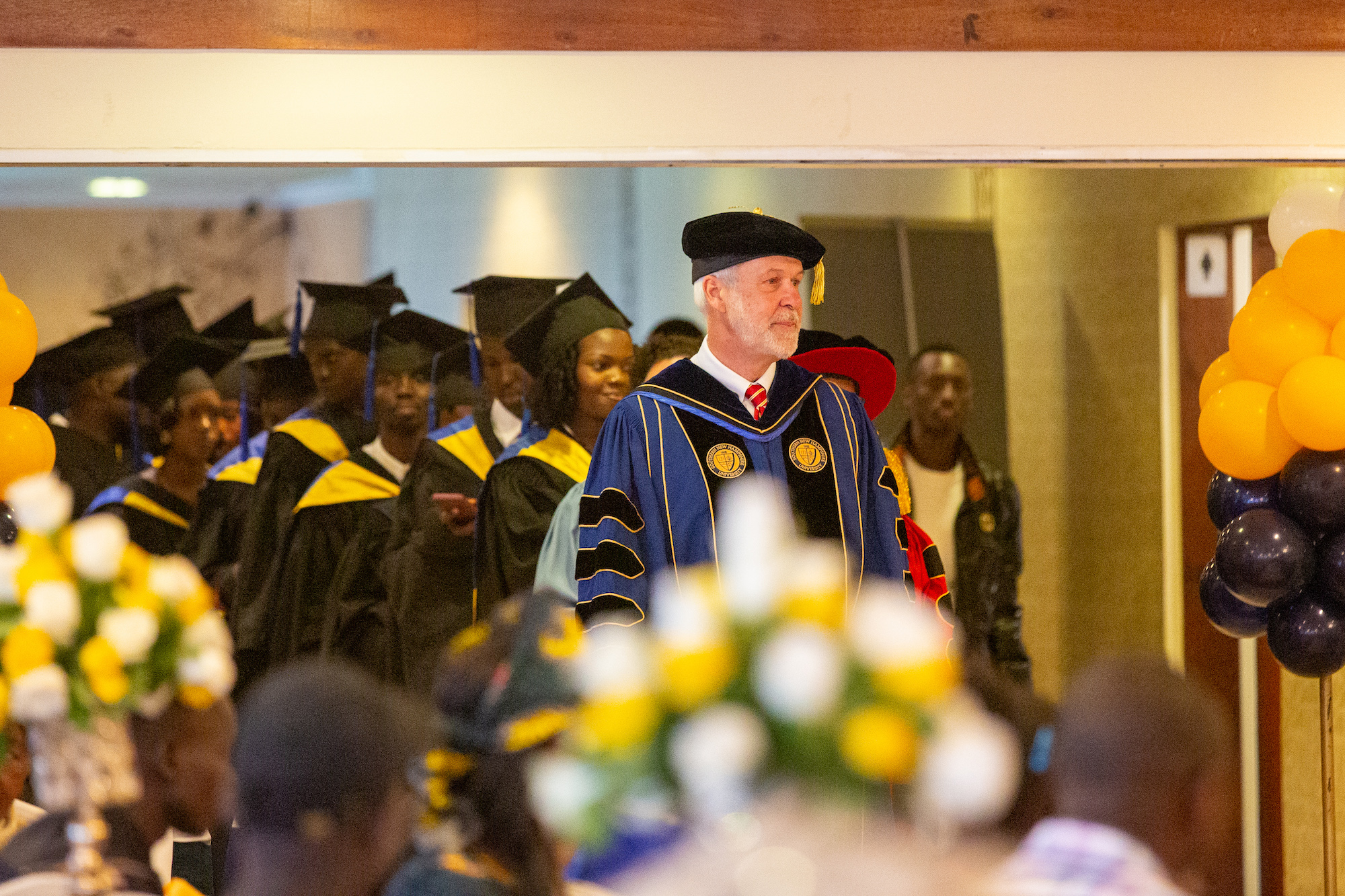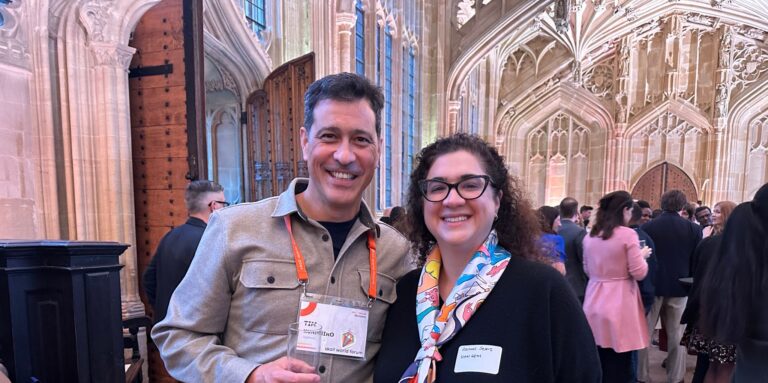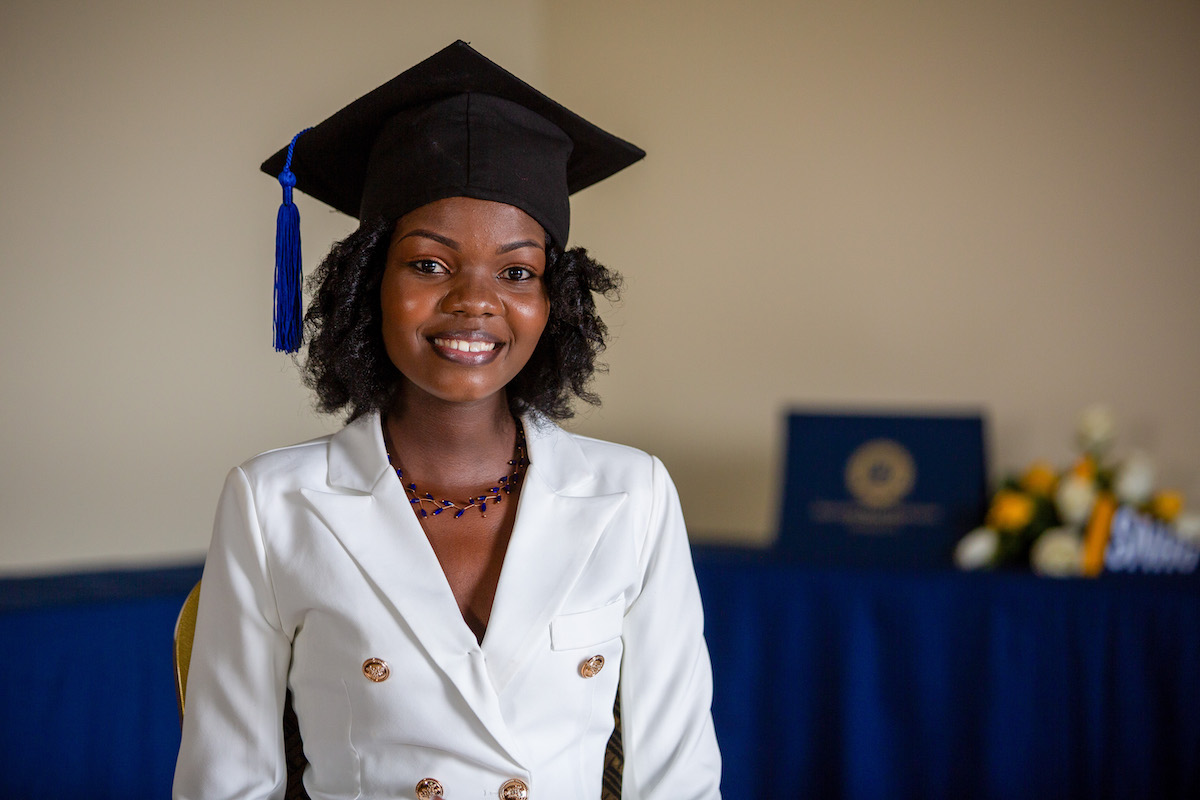Rachael Sears, SNHU VP and SNHU GEM ED, looks ahead to another exciting year in refugee education.
2022 was a busy year for Southern New Hampshire University’s Global Education Movement (SNHU GEM). When I look back on the past 12 months, I am incredibly grateful for the time I spent with our community – celebrating the graduation of 250 students, joining SNHU GEM students and alumni for an insightful World Refugee Day event, and connecting with our partners at conferences and events across the globe.
In the years since SNHU GEM was founded, our organization has expanded to 12 sites in 5 countries, served over 2,200 students, and developed deep partnerships across Africa and the Middle East. The program hasn’t stopped growing or evolving, and 2023 promises to bring more exciting developments. Here are three things I am looking forward to in the year ahead:
Deepening our relationships with partners and students
This year, I look forward to growing SNHU GEM’s relationships with our partners and students. These relationships are vital for us to continue providing high-quality education at our existing sites, and help us determine how we can adapt and grow our programming to best serve our students.
Over the next few weeks, I’ll be visiting our sites in Kenya (Nairobi and Kakuma Refugee Camp) and Malawi (Dzaleka Refugee Camp). On these site visits, I plan to speak with SNHU GEM students about their experiences in our program, and connect with our on-the-ground partners who provide vital wrap-around academic and career support services to SNHU GEM’s learners. In Malawi, I’ll meet with the Advocacy, Training & Education Hub (ATE-Hub), our newest and first refugee-led academic partner organization. And in Kenya, I will meet with our long-standing partner, the Jesuit Refugee Service (JRS). Partnerships are at the heart of our program’s success, and collaboration with organizations like ATE-Hub and JRS is critical to our work.
I plan to visit more SNHU GEM sites and partners across Africa and the Middle East this year. I have no doubt that our time together will spur new ideas about how we can provide education opportunities for refugees and their surrounding communities.
Expanding the role of refugee voices and organizations
In 2023, we plan to strengthen and expand our work with student and alumni leaders and refugee-led initiatives like ATE-Hub in Malawi. ATE-Hub was founded by two SNHU GEM graduates, Dikonzo Akili Peter and Emmanuel Ushindi. I recently had the opportunity to moderate a session at the CLCC conference in Copenhagen, where Dikonzo and Emmanuel spoke about how we can best support refugees and refugee-led organizations as they grow.
I hope to continue that discussion in Malawi later this month, and with other student and alumni leaders throughout the year. SNHU GEM strives to support learners during their education, in their livelihoods and beyond, and believes that providing the best education, services, and opportunities for refugees requires refugee voices, organizations, and leaders to be leading the work.
Hearing student stories from across the globe
Refugee learners come from a wide range of backgrounds and livelihoods – like Rose Maskini, a SNHU GEM graduate who pursued her bachelor’s degree while working and parenting four children. According to UNHCR, only 6% of refugees have access to higher education. Refugees and displaced people deserve a higher education system that meets them where they are, with high-quality, accredited degrees that open pathways to meaningful employment.
The year ahead will offer countless opportunities for learning and growth — both for myself as Executive Director, and for SNHU’s Global Education Movement as a whole.
To make the most of 2023, we can start by speaking with students, alumni, partners, and other education and refugee-serving institutions, listening to their stories, and continuing our work to make access to higher education a reality for every displaced learner.



